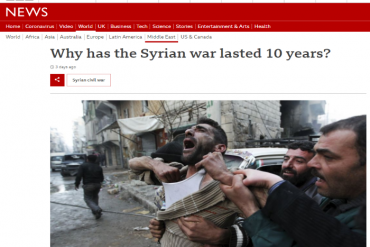Those of us suspicious of the liberalism imputed to movements leading the Arab upheavals – and dismissive of the connotations associated with the term “Arab Spring” – are certainly not pro-Authoritarian. Nor, do we view the relative stability maintained by military dictators and despots which have ruled the region with anything approaching fondness or comfort.
Rather, such skepticism is merely informed by a political sobriety regarding claims that Arab societies (which, almost universally, have never known life in liberal, pluralistic societies) would suddenly embrace democratic ideals when reconstituting the laws, and systems of governments, in their respective countries.
Yet, with each ominous illiberal development reported along the Arab political road, those expressing concern with what such regressive dynamics portend for the region are either dismissed as cynics, or even racists.
We act with alarm over the ascent of the political reactionary Muslim Brotherhood, and even more radical Salafists, in the Egyptian elections; We express concern with a new Tunisia constitution forbidding non-Muslims from seeking higher office; and we look with extreme dismay at reports that David Gerbi, (who, as a 12-year-old, was forced to flee Libya after anti-Jewish programs following the Six Day War spurred attacks on Tripoli Jews) told reporters he optimistically returned to Libya, hoping to restore a long-shuttered synagogue, only to be warned by anti-Gaddafi Libyan revolutionaries that he wasn’t welcomed and should flee.
Four men armed with rifles had come to the synagogue as he tried to enter. A man came and said, ‘You need to stop now. There are men coming with guns and you will be killed,'” said Gerbi, wearing a T-shirt emblazoned “I Love Libya”.
The entire population of Libya’s once 40,000 strong community, which dated back to the 3rd century, had been cleansed – forced to flee by increasingly brutal anti-Jewish violence – within some 20 odd years following WWII, and yet, the ideals and spirit of the anti-Gaddafi revolution would not allow for the return of one single Jew, the opening of one solitary synagogue.
Sadly, anti-Jewish sentiment has marked the uprising against Gaddafi and its aftermath, in which graffiti invoking an alleged Jewish strand in Gaddafi’s lineage has sprung up on walls across the capital.
Antisemitism without Jews.
As I was watching the MEMRI clip of Egyptian soccer fans (in a country where less than 100 Jews remain, out of a community which once numbered 75,000) rapturously chanting continually “One nation for a new Holocaust”, posted here yesterday, a few thoughts crossed my mine.
First, it was clear that neither the Guardian nor, likely, the rest of the mainstream media, wouldn’t cover the incident.
As with the continual explicit Arab antisemitism studiously documented by groups such as Palestinian Media Watch and MEMRI – and which this blog often reports – news of even the most chilling and unambiguous hatred towards Jews simply isn’t part of the liberal media narrative about the Middle East.
The Guardian devoted nearly 400 words yesterday on a report about an an Israeli MK throwing a cup of water on another MK – an institution obsessed with every conceivable Israeli flaw, and whose commentators continually frame every disagreeable piece of legislation being proposed as inconsistent with democratic values – yet rarely, if ever, deems it worth informing their readers when Palestinians honor terrorists, or incite their children to despise Jews and embrace martyrdom.
Such antisemitic phenomena in the Arab world – virulent, even eliminationist, antisemitism within the Muslim tradition which, as Colin Rubenstein wrote, predates Zionism by centuries – of course represents a threat to the several thousand remaining Jews in Arab lands, and it arguably serves as the largest single obstacle to peace in the region. But, such racism is also vitally important to understand when analyzing the possible results of the current Arab political upheavals.
Democracy is not a prize to be won, but, rather, a system of national values, mores and habits to be nurtured and continually defended.
The Arabs’ malign antisemitic obsession doesn’t just threaten Jews, it threatens – and represents the antithesis of – the liberal social, cultural and political traits necessary for real democracy (and a fierce societal allegiance to democratic values) to ever really take hold.
Dictators, be they secular or religious, always need an external enemy to keep control over their people, and in the decades following WWII, when former Arab colonies were given independence, anti-Zionism and antisemitism – whether informed by pan-Arabism, Arab nationalism, or Islamism – has served that role exquisitely.
Natan Sharansky believes that the truest expression of democracy is the ability to stand in the middle of a town square and express one’s views without fear of imprisonment. While this is indeed true, it also seems that a corollary of this principle is just as vital.
The temperature of a healthy democracy can often by measured by what you can say, but freely choose not to out of concern for its political toxicity, or fear of possible public opprobrium, and social disapproval – and the possible resulting loss of what sociologists refer to as “social capital”: family relations and other voluntary associations which often serve to maintain societal cohesion in a functioning democracy.
Arab nations will only truly be free, will be ready for a true liberal democratic transformation when such expressions of Judeophobia – whether in an airport in Tunis, at a soccer stadium in Egypt, during sermons by influential Islamic spiritual leaders, in Saudi school textbooks, or on the pages of countless Arab newspapers – become socially toxic, and simply morally unacceptable.
Perversely, Arab culture and Islamist ideology often characterize Zionism and Jews as some sort of moral albatross preventing their true aspirations from being realized when, however, something closer to the antithesis is closer to the truth.
An Arab culture imbued with antisemitism and anti-Zionism must honestly be confronted, and overcome, for real political and social progress to be achieved.
Much like the yoke of political despotism they’re currently attempting to break free from, the injurious effects of the moral tyranny of their own racism are incalculable.
While the liberal mainstream media’s almost universal failure to honestly confront the Arab world’s antisemitism certainly plays a role in its perpetuation, the one hopeful aspect of such intellectual bondage is that the means to overcoming it is, by definition, ultimately inside those under its grip. It is not dependent on the actions of others.
Beginning the process of freeing themselves from such a malign and crippling obsession is a decision which the Arab world, and the Arab world alone, must make.
Related articles
- The Perils of Self-Deception on the Root Cause of Antisemitism (cifwatch.com)
- Robert Wistrich on failure of the liberal West to confront antisemitism in the Middle East (cifwatch.com)
- Guardian buries and distorts story about US Ambassador’s excuse for Muslim antisemitism (cifwatch.com)
- U.S. Ambassador blames Israel for European Muslim antisemitism: Teachable moment for the Left? (cifwatch.com)





